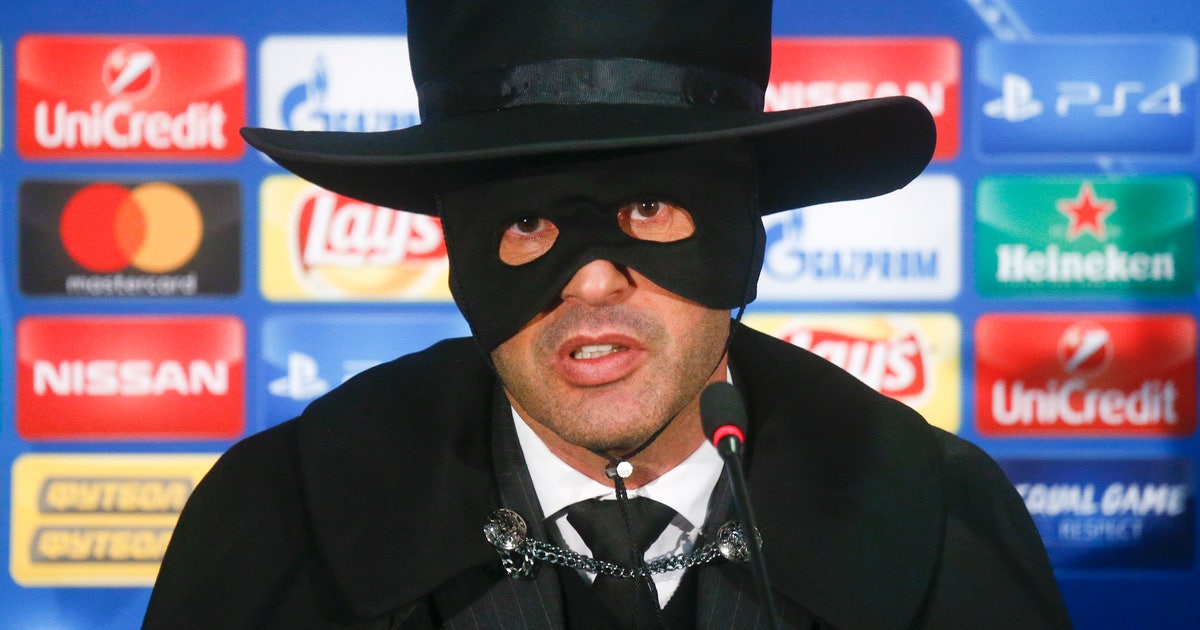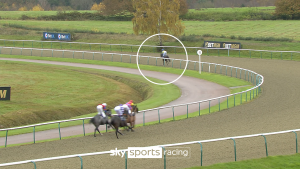Fonseca winning at Shakhtar despite being exiled by conflict


For Paulo Fonseca and Shakhtar Donetsk, every game’s an away game.
Fonseca, a Portuguese coach famous for dressing up as Zorro after his team beat Manchester City in the Champions League in 2017, has won three consecutive Ukrainian league titles with Shakhtar even though the club hasn’t been able to return to its home city of Donetsk since 2014 because it is occupied by Russia-backed separatists.
The club’s offices are still in a hotel in Kiev, where the players live in rented houses. However, home games are played 250 miles (410 kilometers) away in Kharkiv, a city nearer to the conflict zone and Shakhtar’s mixed fan base of locals and refugees from Donetsk.
That all adds up to thousands of miles of travel each year, just for home games. The club has had up to 125 flights a year, said Fonseca, who admits to prioritizing rest and recovery in the scant training time available.
“When we play three games per week, we don’t have time to play with intensity (because the players can’t recover),” Fonseca told The Associated Press in a recent interview. “I don’t know if the war will continue. I don’t know what the club will do with this situation.”
Fonseca took over at Shakhtar in 2016 from Mircea Lucescu, a noted disciplinarian who reshaped the team from an obscure provincial club into a UEFA Cup winner and Champions League regular. Fonseca has continued Lucescu’s record of success with three straight domestic league and cup doubles, but with a more relaxed approach.
When he dressed up as Zorro in 2017 to celebrate the win over City in a bet with a club director, it reflected Fonseca’s playful attitude.
“I like to joke with my players. I like to smile with them,” he said. “Life is too good to be so serious and sometimes we have to break walls with jokes.”
Coaching Shakhtar means juggling different strategies — one for dominating the Ukrainian league, and a more cautious approach for the Champions League. Unlike Jose Mourinho, Portugal’s most famous coaching export who often seems happy to win ugly, Fonseca prizes elegance and style above all.
“For me, just to win is not the only thing I want. I want to have quality in my game. I want to have the ball. I want to play all the time in attack,” Fonseca said. “I want to have the courage to create something beautiful for the supporters, because I love my profession. I love the game. I have a passion about my work. For sure, I’m not resultative. I’m someone who loves the game where the quality is very important for me, not just to win.”
Shakhtar’s success has been built on billionaire Rinat Akhmetov’s money and smart scouting in South America. Fernandinho, Willian and Fred all arrived in Ukraine with Shakhtar as young but unpolished talents and later became top players for English clubs.
Other clubs have caught on, and Shakhtar is struggling to keep its reputation as a finishing school for Brazilians. That means taking more risks and signing younger players with less of a track record in Brazil.
“In the past, Shakhtar can buy the best players before the others, but now it’s different,” Fonseca said. “Real Madrid, Chelsea, the biggest clubs go first and they offer much more money. So Shakhtar needs to choose more young players. They come now aged 18 because if we wait we cannot buy these players.”
Lucescu spent 12 years with Shakhtar, but Fonseca said he could aim for a move “sooner or later” to a major European club.
“I love to be here in Shakhtar, but I’m ambitious. I want to work in the best European leagues like England, Spain, Italy,” Fonseca said. “I don’t have any particular club. Of course when you are ambitious you want to work in the best clubs of these countries. I’m not old, I believe this will happen.”









